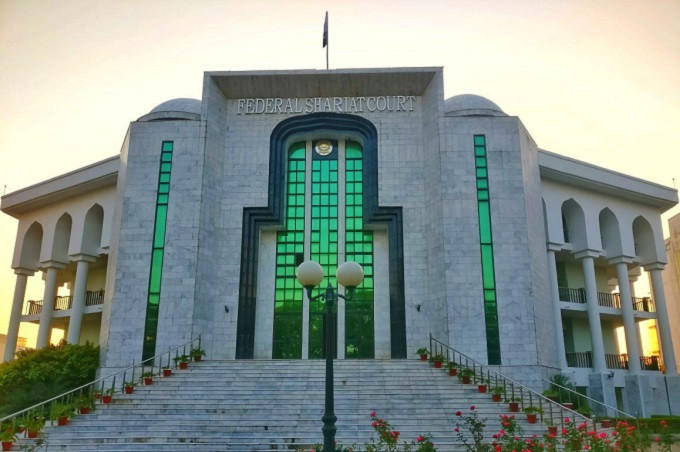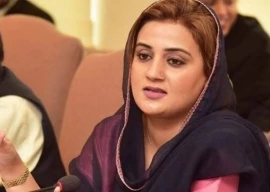
Federal Shariat Court (FSC) Chief Justice Noor Muhammad Meskanzai said on Tuesday the court could only give its verdict after reviewing a law but enacting amendments was the responsibility of parliament and the judges could not give instructions in this regard.
Heading a three-member FSC bench during a hearing of a case pertaining to interest, Chief Justice Meskanzai noted that state institutions had not fulfilled their constitutional obligation to establish an Islamic banking system in the country.
The court praised Attorney General (AGP) Khalid Javed Khan for forwarding good arguments in the case. However, the chief justice noted that on the one hand, the AGP said that the court did not have the jurisdiction and on the other, he asked the court to point out flaws in the law.
The AGP told the bench that there were no two opinions that usury was forbidden, adding that he did not consider that the case was against the government. He added that he also wanted an interest-free system in the country.
Justice Syed Muhammad Anwar said that the AGP had made the case simple. However, he added that the AGP’s arguments were very good but they were not being substantiated by the government measures.
The chief justice said that reviewing the law about interest was a constitutional responsibility of the court and also came under its purview. He added that the court had three options: allow the petition; or point out the flaws; or take constitutional review whether or not the law was Sharia-compliant.
Read FSC seeks consensus on Islamic banking system
The attorney general said that in the case of the third option, the FSC decision would be a mere scholarly debate, while in the second option, the court’s feedback would be implemented gradually. Justice Anwar said if the court pointed out the flaws, how much time would be required to rectify them.
The chief justice said that state institutions had not fulfilled their constitutional obligation to establish an Islamic banking system. Justice Anwar said that a policy report should be issued every 15 years regarding efforts for making the laws Sharia-compliant.
The judge said that it was mandatory under Article 28F of the Constitution and asked as to why the government had not fulfilled its constitutional obligation. The AGP replied the work on the policy report could be started immediately after a meeting with the president.
AGP Khan urged the court not to revoke the current banking system, rather point out the flaws in it. He emphasised that revoking the system in one go would create issues. He added that the country must move towards the Islamic banking system.
The AGP told the bench that consultation with the jurists along with the banks was possible, and requested the court to let the government take measures to end the interest. He added that work in this regard had already begun.
The chief justice told the AGP to consult the relevant sides that inform the court. The bench said that other parties to the case would be heard on the next date of hearing and adjourned the case until March 1.




1732105641-0/BeFunky-collage-(78)1732105641-0-165x106.webp)


1726722687-0/Express-Tribune-Web-(9)1726722687-0-270x192.webp)


1732096230-0/BeFunk_§_]__-(12)1732096230-0.jpg)







COMMENTS
Comments are moderated and generally will be posted if they are on-topic and not abusive.
For more information, please see our Comments FAQ